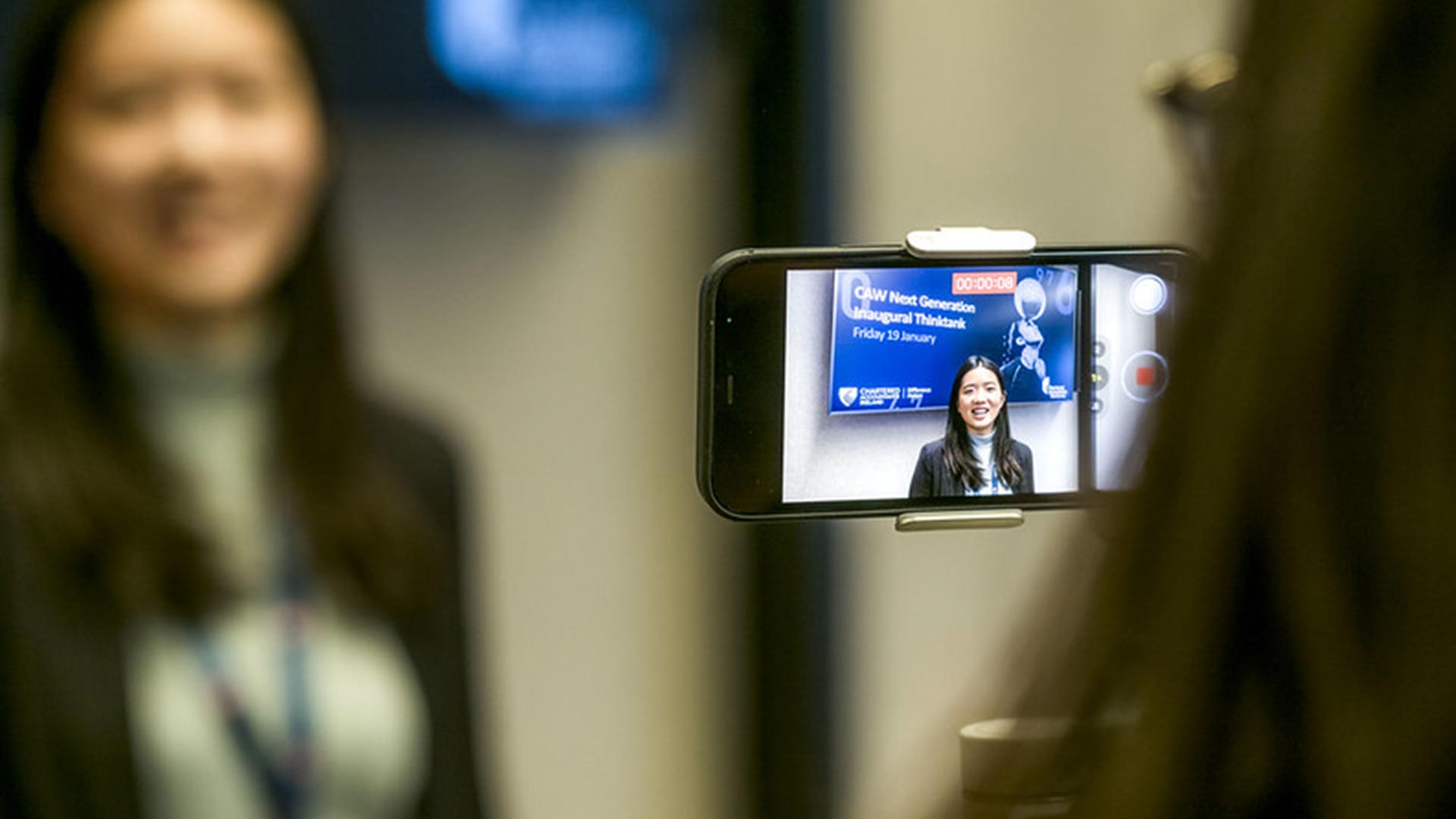Forensic Data Analytics: No Longer Just a Supplementary Tool

BY KEOY SOO EARN
WHAT IS THE NEXT NORMAL?
No country, and indeed, no business, will be immune to Covid-19’s impact. In these uncertain times, it is understandably more difficult for business leaders to make decisions that look beyond the horizon, and it is no surprise that plans for mergers and acquisitions (M&A) take a backseat as businesses grapple with the pressing urgency to simply survive.
The number and value of deals in Singapore and Southeast Asia have decreased as a result of the pandemic. In 2019, Singapore saw 140 deals with an average deal value of about S$231 million compared to 10 deals with an average deal value of about S$45 million in the first half of this year. Southeast Asia saw 461 deals with an average deal value of about S$203 million in 2019, compared to 40 deals with an average deal value of about S$169 million in the first half of 2020. We can expect that M&A activity will continue to decline in the next six to 12 months.
TRENDS ARE ACCELERATING
While the current outlook in the region may seem grim, the trends that are emerging – and accelerating – give us a glimpse of different opportunities in different sectors that can lift businesses out of survival into recovery, and eventually to thrive post-Covid-19.
Certain key trends in the pre-Covid-19 world have accelerated during the pandemic, for instance:
- Digitisation Social distancing has accelerated the adoption of contactless technologies and digital experiences. New businesses launched will increasingly be digital/cloud natives, which will further drive the adoption of emerging technologies (for example, analytics, sensing and 5G).
- Virtualisation of workforce Many organisations have already adjusted to working remotely through virtual communication and collaboration channels and are unlikely to revert entirely. The pandemic has also driven increased adoption of different business models (for example, telemedicine).
- Focus on safety and surveillance More consumers will expect safety and precautionary measures from both brands and governments, driving the need for enhanced surveillance policies and technologies (for example, mobile alerts for contact tracing) among employers and governments. This will give rise to potential privacy concerns that will need to be addressed.
- Corporate social responsibility Taking steps to “do the right thing” in the Covid-19 context is not only more appreciated, it is also becoming “table stakes” for consumers. The rising activism among consumers and employees is expected to drive an increased focus on corporate purpose.
- Emergence of pop-up ecosystems Value chain disruption is likely to lead to more and creative partnerships, which may in turn cause organisations to further invest in developing the mindset and agility to collaborate across sectors in the ecosystem.
- Focus on cost reduction Cost management will be a critical priority to ensure business continuity based on cash flow requirements to manage lower margins and revenues (for example, through restructuring).
The above trends suggest that the Covid-19 pandemic will drive structural change. Travel preferences, attitudes towards crowds and levels of health-consciousness will likely be re-evaluated, and the future of work may change – with businesses placing greater scrutiny over their global supply chains, increased use of technology to replace business travel, and working-from-home arrangements for employees will be more permanent. Also, the accelerated use of technology may support recovery and higher productivity in the long term.
THE EFFECT ON SINGAPORE’S INDUSTRIES
A significant share of industries is estimated to experience negative growth in output over 2020 due to Covid-19, reflecting the widespread impact of the current health and economic crisis as well as the broad reach of the Singapore government’s “circuit-breaker” measures. Industries considered “non-essential” during the circuit-breaker period, that are less able to make use of e-commerce and digital delivery, and less prepared to support work from home strategies will be more impacted.
A recent Deloitte research has ranked the top five industry groups in Singapore that are most impacted on an Industry Impact Index, measured by their estimated growth in industry output and their readiness for the new normal (Figure 1). In the same report, industry groups are also ranked in a Policymaker Priority Index which scales the most impacted industries by their degree of integration with the broader economy (Figure 2). Industries that contribute more to economic growth, support more jobs, and are more integrated with other industries may be higher priority for receiving government support.
Figure 1 Industry Impact Index

Source: Deloitte Southeast Asia Financial Advisory
Figure 2 Policymaker Priority Index

Source: Deloitte Southeast Asia Financial Advisory
The businesses within industries most impacted should have greater impetus to take decisive action to address their vulnerabilities and ready themselves for the future. These actions could involve diversifying the sources of revenue or sales channels to strengthen resilience to external shocks, such as those currently being experienced, or investing in workforce training and new technologies to improve adaptability to the structural changes that will define the next normal.
THE NEXT NORMAL FOR M&A
In this environment, we can expect to see increased distressed M&A opportunities. Enterprises and private equity firms with available funds set aside for acquisitions and investments will be well-positioned to enter the market at a lower asking valuation than pre-Covid-19 times. However, these acquisitions and investments will require the investor to have access to expertise to turn around the distressed business.
Sectors that would likely present distressed M&A opportunities include:
- Hospitality Halted consumer demand has forced the closure of many hospitality venues, and business model changes have been accelerated to address profitability. Digital channels and home delivery are expected to grow fast. Many hotel chains are facing liquidity issues due to very low occupancy rates, and further consolidation is expected.
- Aviation Airlines are expected to reduce the size of their fleets, and no-frills airlines and mid-sized/regional carriers are the hardest hit. Privatised airport operations and ground-handling services are facing radical capacity reductions and financial restructuring, or potential wind-down.
- Retail and wholesale (non-food) Lower footfall at physical locations will pose viability issues for companies that cannot go digital. Significant acceleration in online sales has resulted in companies rushing to move their offerings to digital channels to maintain demand. Customers will expect a seamless omni-channel experience with new shopping and delivery options that will affect margins.
- Automotive Dealers are under significant cash flow pressure due to the sharp decline in sales; dealer capacity is too high and consolidation of dealerships is expected.
We are also noticing that investors are moving from an “acquire for growth” to “acquire to transform” model. We anticipate a different approach to M&A to emerge, where transformation is pursued simultaneously with an acquisition. Companies that take advantage of this can implement new business and operating models for a combined or separate entity, and drive significant revenue growth and sustainable margin improvement.
As we ride out the Covid-19 wave, we envision the following focus areas of M&A activities where enterprises may look to “acquire to transform” and be well-positioned for the next normal:
- Technology The pandemic has demonstrated the importance of digital readiness and is catalysing digital transformation. Businesses must leverage on technologies to address changing needs of consumers, better manage supply chain, and re-energise and manage workforce remotely. Enterprises will likely explore acquiring or investing in relevant emerging technology startups to speed up their own digital transformation. A boost in M&A activity will likely happen in software and e-industries as the online business presence will remain strong post-crisis, with convenience and speed being competitive advantages. We are also expecting to see activity in data-rich industries with businesses becoming digital and embracing technology-driven solutions including blockchain, cybersecurity, artificial intelligence and cloud to extract additional value for the business after it has been digitised. Another emerging investment hotspot is in digital infrastructure that is the foundation of digital economic activities and technological applications of any nation.
- Environmental, social and governance (ESG) Enterprises are realising that identifying, assessing and managing inherent ESG aspects of their business offer opportunities, oftentimes in financial, economic and brand preservation terms. With ESG under the spotlight, and with enterprises getting regularly critiqued on ESG performance by regulators, investors and financiers are rewarding enterprises which not only abide by but also demonstrate continual improvement. Any ESG gaps offer opportunities for enterprises to increase the value of their business. Enterprises could look to plug any ESG gaps via acquisition of a business with a strong ESG agenda to transform the combined entity. Enterprises with a strong ESG agenda can also access green/social funding. Sustainable finance, specifically, green and social bonds, has seen unprecedented growth, driven by increased issuer and investor approaches to environmentally-conscious and socially-related issues, regulations and demands by stakeholders. Green finance has been applied to transform carbon-dependent businesses, cities and infrastructure. The increasing issuance of social bonds, on the other hand, seeks to fund positive social outcomes such as generating employment opportunities, access to healthcare and education, and affordable housing.
CONCLUSION
The post-Covid-19 M&A environment will be materially different. Corporate purpose that intertwines sustainability with commercial success, resilience and building trust across a wide coalition of stakeholders will be the cornerstone of deal-making. Well-planned bold moves will help companies recover and transform themselves to augment their competitive edge and redefine market opportunity while maximising value creation and accelerating time to value in the new world.
Keoy Soo Earn is Regional Managing Partner, Financial Advisory, Deloitte Southeast Asia.
This article was first published in the ISCA Journal. The original article may be viewed at the following URL: https://journal.isca.org.sg/2020/08/20/ma-in-covid-19-times/pugpig_index.html












